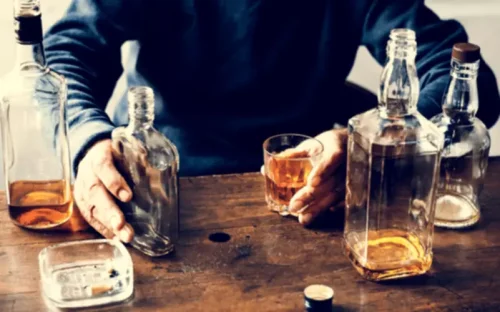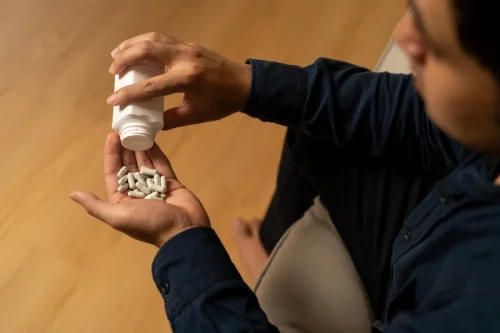
Expectancy theory has shown that when people expect to have fun, they usually do, and when they expect that something will not be fun, it usually isn’t [15]. In the early stages of substance abuse, using is mostly a positive experience for those who are emotionally and genetically predisposed. Later, when using turns into a negative experience, they often continue to expect it to be positive. It is common to hear addicts talk about chasing the early highs they had. On the other hand, individuals expect that not using drugs or alcohol will lead to the emotional pain or boredom that they tried to escape.
Group Therapy Activities Build a Sense of Community and Accountability
- Now, armed with these strategies and your own determination, you’re ready to take on the challenges ahead.
- At American Addiction Centers, we offer a 90-Day Promise that gives you 30 additional days of complimentary treatment if you relapse after 90 consecutive days at one of our facilities.
- Self-awareness allows people to identify patterns of thinking or behavior that may lead to relapse and to implement coping strategies or seek support accordingly.
- During a smoking cessation attempt, participants reported on SE, negative affect and urges at random intervals.
- By cultivating a diverse toolkit of healthy coping strategies, individuals build resilience and adaptability, empowering them to navigate the complexities of recovery with confidence and strength.
A behavioral strategy is to call and engage in conversation with a friend or other member of your support network. Getting out of a high-risk situation is sometimes necessary for preserving recovery. It’s possible to predict that some events—parties, other social events—may be problematic.
Mechanisms of treatment effects
Just as there are numerous views on human nature and multiple therapy models, there are different views on relapse prevention. Relapse prevention plans can include ways in which you hope to amend the damage addiction caused in your life. Separating these damages into areas like relationships, legal issues, financial issues or education can help you regain insight as to why you decided to get sober in the first place and https://ecosoberhouse.com/ provide motivation to make positive choices. Regardless, it is important to consider the following items when creating a relapse prevention plan. These mindfulness skills are intended to help the patient increase their awareness of cravings and other unpleasant feelings without judgment of the feelings as “bad” or necessitating a reaction. The clinician will use a range of strategies to facilitate these activities.

Relapse Prevention: Practical Strategies for Long-Term Addiction Recovery

A relapse prevention plan plays a vital role in mitigating the risk of relapse and supporting individuals in maintaining their recovery goals. These skills encompass a range of strategies, from self-awareness and coping mechanisms to building a robust support network and implementing healthy routines. A relapse prevention plan includes various strategies and techniques, such as identifying personal behaviors, to help reduce the risk of a relapse following treatment for substance use disorder. When individuals continue to refer to their using days as “fun,” they continue to downplay the negative consequences of addiction.
Addiction Treatment (Rehab) Guide
Then, the patient and clinician work to develop strategies, including cognitive (related to thinking) and behavioral (related to action), to address those specific high-risk situations. With more effective coping, the patient develops increased confidence to handle challenging situations without alcohol and other drugs (i.e., increased self-efficacy). Outdoor group activities for relapse prevention such as hiking, camping, and walking groups promote recovery by connecting you with nature, reducing stress, and providing a sense of accomplishment. The physical exercise involved in these activities boosts mood and helps to manage anxiety and depression, which can be triggers for alcohol or drug use. Through a variety of exercises and discussions, group members learn to identify their triggers, manage cravings, and develop practical skills to stay on track.
Reducing Relapse Risk

This concurs not only with clinical observations, but also with contemporary learning models stipulating that recently modified behavior is inherently unstable and easily swayed by context [32]. Detailed discussions of relapse in relation to NDST and catastrophe theory are available elsewhere [10,31,34]. It happens in definable, recognizable and preventable stages with telltale emotional patterns and other indicators. With some effort and practice, we should be able to detect the smallest and earliest signs of a potential relapse. Then we can address the issues as they arise and find a healthy way forward.

Cognitive Behavioral Therapy for Relapse Prevention
- Historically, cognitive processes have been central to the RP model [8].
- Patients should be able to identify red flags in their behavior and emotional and mental states.
- But in the repair stage of recovery, it is not unusual for individuals to feel worse temporarily.
- Avoidance is an excellent coping strategy if you know that you are likely to run into danger.
- These group activities for relapse prevention also fostered a sense of camaraderie with other members of the group, which helped Lisa build meaningful connections and reinforce her commitment to recovery.
Relapse prevention skills are essential to learning to live a happy life in recovery. One day at a time, one can learn to implement these coping skills to prevent relapse and live a life beyond their wildest dreams. In addition to these common signs, patients may have their own unique indicators as well that signal they are drifting away from recovery. It is important to help patients learn to identify their own warning signs of the relapse processthis will help them increase self-awareness and strengthen recovery.
Addiction Treatment Success Rates: Unveiling the Reality of Recovery
Substance abuse relapse occurs when a person who has attempted to stop using a substance begins to use it again. Relapse can occur very soon after attempting sobriety, or after several years of sustained sobriety. The purpose of this rule is to remind individuals not relapse prevention skills to resist or sabotage change by insisting that they do recovery their way. A simple test of whether a person is bending the rules is if they look for loopholes in recovery. A warning sign is when clients ask for professional help and consistently ignore the advice.
- By Geralyn Dexter, PhD, LMHCDexter has a doctorate in psychology and is a licensed mental health counselor with a focus on suicidal ideation, self-harm, and mood disorders.
- RP skills in MET/CBT include assertive drink and drug refusal, strategies to obtain social support, developing a plan for fun sober activities, and problem solving for high-risk situations and a lapse if it occurs.
Why Your Daily Commute Might Be Damaging Your Ear Health

Cognitive-behavioral theories also diverged from disease models in rejecting the notion of relapse as a dichotomous outcome. Rather than being viewed as a state or endpoint signaling treatment failure, relapse is considered a fluctuating process that begins prior to and extends beyond the return to the target behavior [8,24]. From this standpoint, an initial return to the target behavior after a period of volitional abstinence (a lapse) is seen not as a dead end, but as a fork in the road. While a lapse might prompt a full-blown relapse, another possible outcome is that the problem behavior is corrected and the desired behavior re-instantiated–an event referred to as prolapse.
